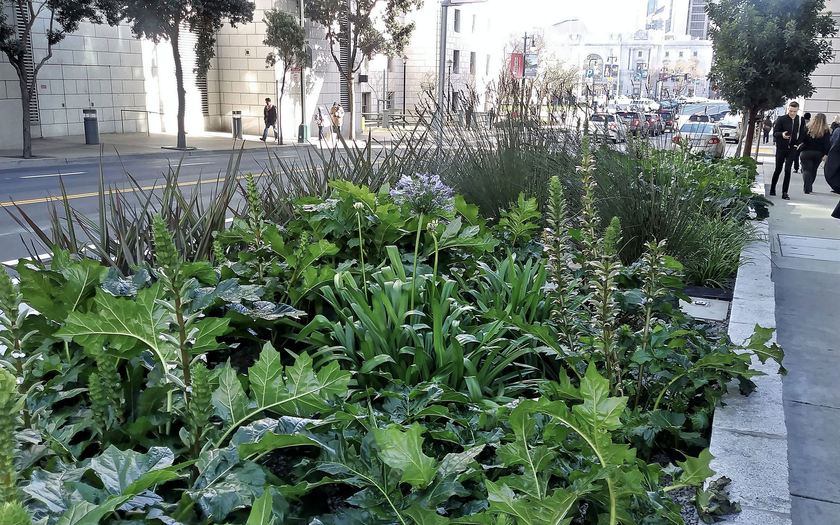San Francisco
Understanding the enabling environment for on-site non-potable reuse
By Miriam Hacker

Between January – February 2020, the Barriers project team visited San Francisco, United States, in their first phase of data collection. San Francisco is pioneering on-site water reuse for non-potable applications, developing an innovative addition to their local water portfolio. With more than 80 on-site rainwater, greywater and blackwater reuse systems installed, the city presents a showcase of best practices for planning, installing and operating on-site systems, which could potentially serve as an example for other cities around the globe. While San Francisco has cleared a path, some key challenges still exist in turning this approach into a fully legitimized, taken-for-granted practice that is able to scale and diffuse to other places.
The Barriers team conducted 25 semi-structured interviews with key stakeholders, including regulators, building owners, government agencies, environmental organizations, engineers and technology suppliers. At the end of the data collection campaign, a focus group meeting was held to gather specific information on current non-technical challenges being faced in the on-site water reuse sector. This was a great opportunity to share insights from the Wings program and to assess how the institutional barriers that industry professionals are experiencing with respect to the implementation of non-grid, small-grid and hybrid solutions might be compiled into a comprehensive analytical framework.
Initial analysis indicates that the introduction of on-site water systems initially created friction between groups of actors that differed in their core ideologies, missions and operational roles. This considerable initial institutional complexity was then strategically addressed by the local utility and new entrants to the field, who collectively worked on defining roles more clearly, creating new regulatory frameworks and aligning priorities across the different groups of actors. Further research is being done to understand what factors facilitated San Francisco’s successful transition to on-site non-potable water reuse systems and what it might mean for other cities that opt for similar non-grid, small-grid and hybrid solutions. This is the first step in one of the larger goals of the Wings program: to document ‘lighthouse’ cities that are adopting innovative on-site urban water management solutions and to cultivate a stakeholder network on a global scale.
Key insights
- San Francisco is an interesting ‘lighthouse case study’ of on-site water reuse being implemented on a city scale
- Many stakeholders with diverging worldviews are involved in its on-site water reuse program, creating institutional complexity
- Our framework for analyzing institutional complexity helps key stakeholder groups better understand how they might act collectively to overcome non-technical barriers to the implementation of non-grid, small-grid or hybrid urban water solutions
